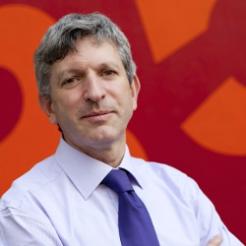Setting up a charity without checking what other charitable provision already exists is “verging on the immoral”, NPC chief executive Dan Corry told a conference at Cass Business School today.
In a speech to an event titled ‘The peculiar institution of charity – the morality of charitable giving and receiving’ at the Centre for Charitable Giving and Philanthropy, Corry floated a series of questions about morality that he says all those that fund, work for and support UK charities, ought to consider.
The first question concerned people’s decision to set up or even donate to a charity. “I would argue it verges on the immoral just to set up a charity or give to a charity without doing a wee bit of homework,” he said. “If you set up a new charity you might be taking away work from another one down the road that is in fact better than you.”
His second question focused on the inherent bias of the sector, created by its funders. “If the civil society we get is in the end the creation of funding that comes through government, through donors – especially well-heeled ones, and through active, ‘believing’ volunteers, then do we get a civil society that is twisted by the preference of these folk? If it does then there is something wrong with the morality of the sector as a whole – not reflecting every aspect of society, tending to downplay minority and unpopular causes – or indeed big them up too much?”
Corry also explored the imbalance of the volume of charitable activity in richer areas versus the lack thereof in poorer ones, and whether this is immoral. And he questioned whether it is moral to be involved in charities that help people to “pick up the pieces” of their lives and alleviate suffering – the Victorian approach to charity – “if you are not prepared to do something about the causes of such destitution?”
“If you don’t attack these causes – be they troubled families, lack of parental nurture, the inequality of access to digital media, the inequity in world resources – then the problems will always be with us and all we are doing is binding over the wounds for a bit.”
Corry told another event earlier this week that he was bemused when he joined the sector to find that on one hand it seemed very nervous and considered itself to be very fragile and breakable, while on the other hand it was full of its own self-importance.
Other speakers at today’s event include researchers and academics Cathy Pharoah, Jenny Harrow, John Mohan, Colin Rochester, Dr Nick Acheson and chaired by Prof Nicholas Deakin.










